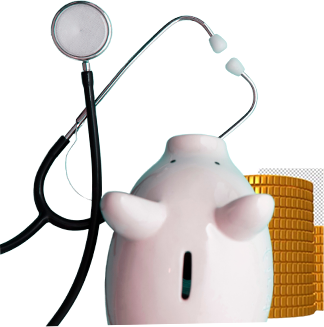PERSONALIZED DIET PLAN FROM
Ketogenic Dietician

Contact Us
A dietician who helps and guides in ketogenic diets is called ketogenic dietician. It is a diet with high fat and low carbs that puts the body in ketosis. Ketosis is a condition in which the body uses fat for energy instead of glucose, which is suitable for weight loss. Research shows conditions like type 2 diabetes, epilepsy, and metabolic disorders get beneficial with a ketogenic diet.

What is a Ketogenic Diet?
The ketogenic diet is a low-carb, moderate-protein, high-healthy-fat dietary regimen. By drastically lowering the carb intake, the body adapts to utilising glucose as the major fuel source instead of breaking down fat and generating ketones to use as fuel.
Benefits of the Ketogenic Diet
Aside from weight loss, the ketogenic diet has also been studied for its potential therapeutic benefits in treating epilepsy, type 2 diabetes, metabolic syndrome, and even some cancers. It is also said to give sustained energy, minimise inflammation, and maximise clarity of mind.
Why Visit a Ketogenic Dietician/Nutritionist?
Starting a ketogenic diet can feel overwhelming without the right guidance. A keto nutritionist helps you stay on track, avoid common mistakes, and achieve lasting results.
Personalised Guidance and Education
A ketogenic diet is not a cookie-cutter approach. A ketogenic nutritionist creates a plan tailored to your body type, activity level, medical condition, and objectives. An experienced ketogenic dietician or nutritionist also educates clients about ketosis, food selection, and lifestyle practices to provide lasting outcomes.
Monitoring Progress and Adjustments
Your keto nutritionist monitors your ketone, energy, weight loss, and general well-being. If needed, they make adjustments to your macronutrient ratio, meal frequency, and food selections to yield the optimal result.
Managing Medical Conditions with Keto
The ketogenic diet is employed to treat conditions such as epilepsy, type 2 diabetes, metabolic syndrome, and PCOS. A dietitian makes it safe and effective for a person suffering from a particular disease.
Practical Meal Planning and Recipe Solutions
Meal planning may take time, but a dietitian makes it simple by providing easy-to-follow recipes, shopping lists, and tips on meal preparation to ensure consistency.
Increased Energy and Clarity
Increased energy, fewer cravings, and better concentration are common in most people on the ketogenic diet. A ketogenic nutritionist will ensure that you have the appropriate nutrients to obtain the maximum benefit.

Popular Ketogenic Diet Plans
Ketogenic deticians administer different diet plans based on individual nutritional needs, health goals, medical conditions, and lifestyle preferences, tailoring macronutrient ratios and food choices to achieve optimal benefits. There are several ketogenic diet plans, each of which is designed to suit the needs of different lifestyles and health objectives.
Standard Ketogenic Diet (SKD)
This is the most popular keto diet, with low carbs (5-10%), moderate protein (10-20%), and high fat (70-80%). It is ideal for weight loss, blood sugar management, and metabolic health.
Cyclical Ketogenic Diet (CKD)
This entails switching between low-carb days (5-6 days a week) and high-carb “refeed” days (1-2 days a week). It is ideal for athletes and individuals who require occasional carb consumption.
Targeted Ketogenic Diet (TKD)
This diet is created for the active individual and permits controlled carbohydrate consumption before or after physical activity to enhance performance.
High-Protein Ketogenic Diet
This variation contains a slightly increased protein consumption (30-35%), which is suitable for muscle preservation and fullness while staying in ketosis.
Recommended Foods to Eat on a Ketogenic Diet
A ketogenic dietician suggests whole, unprocessed, and nutrient-rich foods and avoiding high-carb and processed foods.
Best Foods to Consume
- Healthy Fats: avocados, olive oil, coconut oil, nuts, and seeds.
- Protein: meat, poultry, fish, eggs, and dairy.
- Low-Carb Vegetables: spinach, broccoli, cauliflower, and zucchini.
- Berries: strawberries, blueberries, and raspberries in moderation.
Foods to Avoid
- Grains: rice, wheat, oats, and bread.
- Starchy Vegetables: potatoes, corn, and peas.
- Sugary Foods: candy, soda, and desserts.
- Processed Foods: Hidden carbs and unhealthy additives are commonly found in packaged foods.
Lifestyle Adjustment for an Effective Keto Life
Living the keto lifestyle is not dieting, it’s about habits for long-term success.
Hydration & Electrolytes: Drink lots of water and take in sodium, potassium, and magnesium.
Regular Exercise: Add strength training and moderate cardio.
Meal Prepping & Tracking: Meal prep and track macros to maintain ketosis.
Listen to Your Body: Adjust food intake based on energy and development.


How a Nutritionist's Keto Plan Works
An effectively planned ketogenic diet crafted by a nutritionist guarantees nutritional balance, longevity, and optimal health benefits.
Step 1: Macronutrient Allocation
They create a personalised macronutrient ratio created by a nutritionist with low-carb, high-fat, and moderate-protein content.
Step 2: Meal Planning and Food Choice
They guide you on choosing keto health foods and avoiding processed foods, and include weekly meal plans for your ease.
Step 3: Ketosis Monitoring and Revisions
A ketogenic dietician or nutritionist monitors ketone levels, energy, and progress and adjusts the diet accordingly.
Why Choose QUA Nutrition for a Ketogenic Diet?
At QUA Nutrition, we believe that a ketogenic diet is not just about slashing carbs but about getting to know your body’s unique needs and feeding it in the best possible way. Having spent more than a decade in the field and with 60,000+ success stories across the globe, we specialize in customized nutrition plans based on your genes, lifestyle, medical history, and objectives. Regardless of whether you’re a high-level athlete, fitness enthusiast, or simply an individual who desires a healthier lifestyle, our expert dietician nutritionists create tailored keto meal plans that easily accommodate your hectic lifestyle.
Powered by the latest nutrition planning tools, we keep your ketogenic plan balanced, sustainable, and impactful. At QUA Nutrition, our “Eat to your capacity” tagline reflects our intention to equip you with the accurate information and materials you need to thrive on keto in the long term.
Contact us now to get expert advice from our ketogenic dietician/nutritionist.

Our Success Stories
Q: How long does it take to reach ketosis?
A: The majority of individuals take 2-7 days on a low-carb, high-fat diet to reach ketosis. The speed of the transition is dependent on activity level, metabolism, and carbs you are consuming.
Q: Can I stay on the ketogenic diet in the long run?
A: Yes! A majority of individuals can follow a ketogenic lifestyle for several years under proper guidance from a nutritionist to maintain nutrient balance and sustainability.
Q: Will I have side effects on keto?
A: Some individuals get keto flu within the initial few days, which causes tiredness, headaches, and nausea. A nutritionist manages the same through proper hydration, electrolytes, and dietary transition.
Q: Is the keto diet safe for all?
A: The keto diet is usually safe but can be unsuitable for some with specific medical conditions. Consultation with a ketogenic doctor or dietician in advance is advised prior to initiating.
Q: How do I know if I am in ketosis?
A: The signs of ketosis are increased energy, decreased hunger, clearer head, and fat loss. Checking on ketone levels with urine strips, breath meters, or blood meters gives factual evidence.


